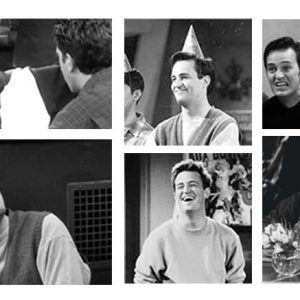“Friends” remains a beloved sitcom that resonates with audiences even decades after its original run. The 9 Most Feminist Things About ‘Friends’.
Despite its lighthearted humor and often traditional storylines, the show also contains several feminist elements that contribute to its enduring popularity. Here are nine of the most feminist aspects of “Friends”:

1. Monica’s Career Ambition
Monica Geller is a driven, talented chef who rises through the ranks in a male-dominated industry. Her dedication to her career and her refusal to settle for anything less than her dreams are inspiring. Monica’s journey highlights the importance of pursuing one’s passion, regardless of societal expectations.
2. Rachel’s Transformation
Rachel Green’s character arc is a testament to personal growth and independence. She evolves from a spoiled, dependent young woman into a successful fashion executive. Rachel’s story emphasizes the significance of self-reliance and breaking free from traditional gender roles.
3. Phoebe’s Unapologetic Individuality

Phoebe Buffay is unapologetically herself, embracing her quirks and unconventional lifestyle. She defies societal norms and doesn’t conform to traditional expectations of women. Phoebe’s character encourages women to embrace their uniqueness and live life on their own terms.
4. Chandler’s Support of Monica’s Success
Chandler Bing’s relationship with Monica is one of the most progressive aspects of the show. He is proud of Monica’s success and supports her career ambitions without feeling threatened by her achievements. Their dynamic challenges the notion that men need to be the primary breadwinners in a relationship.
5. The Rejection of Toxic Masculinity
Ross, Chandler, and Joey often exhibit behaviors that reject traditional toxic masculinity. Whether it’s Ross being comfortable with his emotions, Chandler’s willingness to show vulnerability, or Joey’s respect for women, the show subtly promotes healthier expressions of masculinity.
6. Carol and Susan’s Relationship
The portrayal of Carol and Susan’s lesbian relationship was groundbreaking for its time. The show depicted their relationship as normal and loving, without sensationalizing it. This representation helped to normalize same-sex relationships and contributed to greater acceptance of LGBTQ+ rights.
7. Rachel’s Decision to Have a Baby Alone
Rachel’s choice to raise her daughter, Emma, as a single mother is a significant feminist moment in the series. Her decision reflects the reality that women can successfully balance motherhood and a career, challenging the notion that a traditional family structure is necessary for raising a child.

8. Monica’s Control Over Her Body
Monica’s storyline often touches on her struggles with weight and body image, but what stands out is her ultimate control over her body and the confidence she gains. The show highlights the importance of self-acceptance and challenges societal pressures on women to conform to specific body standards.
9. The Friendship Between the Women
The strong bond between Monica, Rachel, and Phoebe is central to the show’s success. Their friendship is supportive, non-competitive, and empowering. They lift each other up, providing a positive representation of female solidarity that contrasts with stereotypical portrayals of women as rivals.
“Friends” may not be a perfect example of feminist media, but it does contain several progressive elements that resonate with modern audiences. These feminist aspects of the show continue to inspire and empower viewers, making “Friends” a series that stands the test of time.





